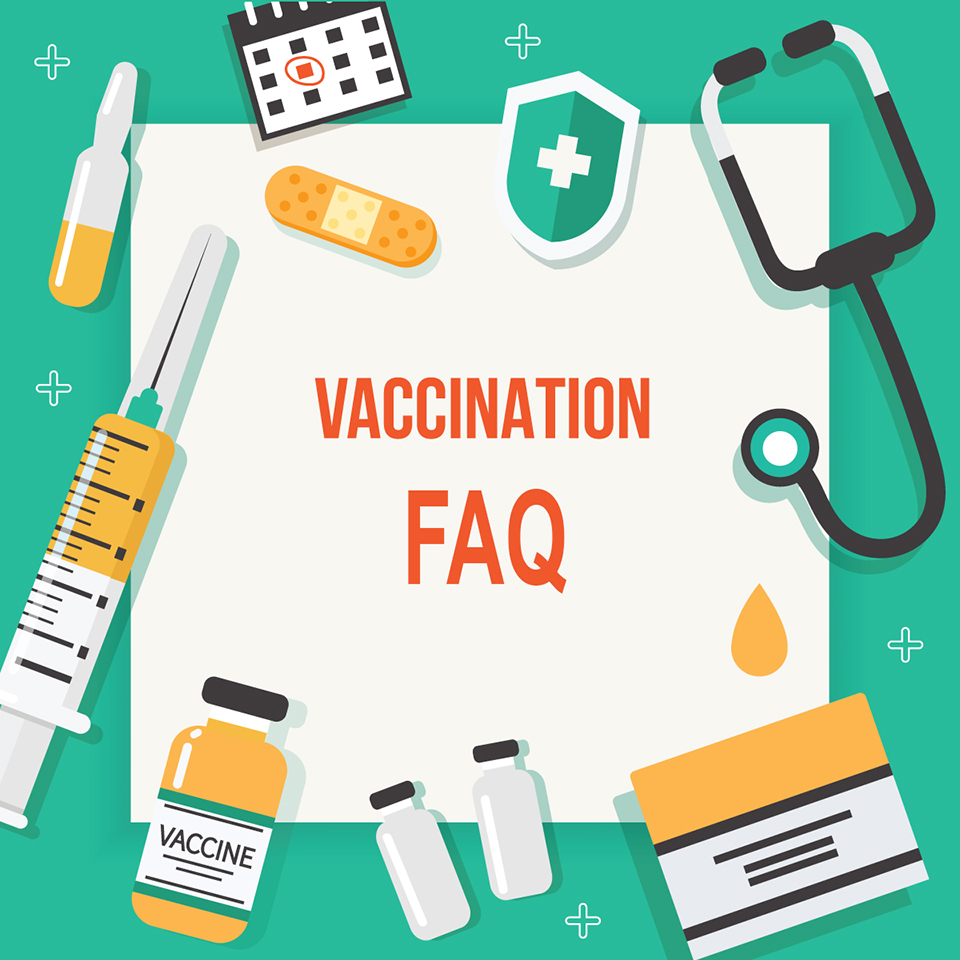Adult ImmunizationImportant Information You Should Know

What is immunization?
Immunization is a way to protect people from getting a number of illnesses. Many of these illnesses can spread easily and cause serious health problems. They can even cause death.
People usually get immunizations when they are children. Immunizations are often given as shots called vaccines.
Why do I need vaccines if I feel okay?
Vaccines will protect you from getting sick. Without them, you have a higher risk of developing serious illnesses.
Even adults who received vaccines as children should receive some of the vaccines again. Without a new dose of the medicine, called a "booster" shot, they are not protected as well.
How do I know what vaccines I need?
Your healthcare provider can tell you what vaccines you may need by asking you about your medical history. If you:
Never received vaccines as a child, OR
Don't know if you received vaccines,
you are likely to need a number of vaccines.
What vaccines should I have been given as a child?
You should have been given vaccines for:
Pertussis (whooping cough)
Rubeola (measles)
Tetanus (lockjaw)
Diphtheria
Mumps
Polio
Rubella (German measles)
Varicella (Chickenpox)
What vaccines do I need if I was never vaccinated?
In most cases, you will need vaccines for:
Tetanus (lockjaw)
Hepatitis B
Diphtheria
Polio
If you were born after 1956, and have not already received a second shot for these diseases, you are likely to also need vaccines for:
Rubeola (measles)
Mumps
Rubella (German measles)
If you have had any of these illnesses, you may not need vaccines for them.
What shots do I need if I was vaccinated as a child?
Everyone should get a tetanus (lockjaw) and diphtheria vaccine once every eight to 10 years. It's also a good idea to get a flu shot (influenza vaccine) every year.
Influenza and pneumococcal pneumonia shots are very important for people who:
Are 50 or older
Have a lung or heart disease
Have diabetes
Have difficulty fighting illnesses (can be caused by organ transplant medicine, some kidney diseases, cancers, and other diseases)
Note: You must get a new influenza shot every fall to be protected, but the pneumonia vaccine is needed only once after age 65.
Are there any other vaccines worth considering?
A single dose of a shingles (herpes zoster) vaccine is indicated for adults 60 years of age and older. Shingles is caused by the same virus that causes chicken pox. Shingles is an outbreak of a rash or blisters on the skin and can be very painful. The vaccine is only a preventive therapy and is not a treatment for those who have already developed shingles. Of course, an annual flu (influenza) shot and a hepatitis A shot for travelers are vaccines worth considering.
Are vaccines safe?
Yes. Vaccines are very safe. The illnesses present a greater health risk to you than the vaccines.
Serious side effects from vaccines are not common, but can happen. Ask your health care provider to tell you about possible risks and side effects.
What is a "booster" shot?
A "booster" shot is another dose of a vaccine. Tetanus and diphtheria shots that people get every 10 years are called booster shots. The additional dose of medicine "boosts" your protection against an illness.
Should I get vaccines if I am pregnant?
Measles, mumps, rubella, polio, and chickenpox vaccines are not safe for pregnant women. Tetanus, diphtheria, and influenza vaccines may be given safely during pregnancy. The safety of the pneumococcal vaccine in pregnancy has not been studied. Consult your doctor before a vaccination.
Do I need vaccines if I plan to get pregnant?
If a pregnant woman gets German measles (rubella), her baby can be born with birth defects. If you plan to get pregnant, you should be sure that you are immune to German measles. This can be determined by a blood test. You should not get this vaccine if you plan to get pregnant within the next three months. Additionally, you should not receive the chickenpox vaccine if you are planning to become pregnant in the next four weeks.
It is important that you keep a record of when you received your immunizations. This record is an important part of your health history.
Where can I get more information?
Call your local public health department, or contact the Centers for Disease Control and Prevention:
National Immunization Program
Centers for Disease Control and Prevention
1600 Clifton Road
Atlanta, GA 30329-4027
Phone: 1 (800) CDC-INFO (232-4636) ☎
E-mail: http://wwwn.cdc.gov/dcs/ContactUs/Form
Web: http://www.cdc.gov/
© Copyright 1995-2023 The Cleveland Clinic Foundation. All rights reserved.
This information is provided by the Cleveland Clinic and is not intended to replace the medical advice of your doctor or health care provider. Please consult your health care provider for advice about a specific medical condition. For additional health information, please contact the Center for Consumer Health Information at the Cleveland Clinic (216) 444-3771 ☎ or toll-free (800) 223-2273 ☎ extension 43771. If you prefer, you may visit Cleveland Clinic
Healthy Community Initiative (HCI):
#HealthyCommunitiesInitiative
The Healthy Community Initiative is a collaborative effort between Cleveland Clinic and community partners to promote optimal health and wellness. Based on the community health needs assessment and utilizing combined resources within our local communities, Healthy Community Initiative programs will be customized around three core areas: education, nutrition and physical activity.
Live Long Lyndhurst Health and Wellness Initiative (HWI):
#LiveLongLyndhurst
Live Long Lyndhurst is a Health and Wellness Initiative between the City of Lyndhurst, Cleveland Clinic Community Outreach, Legacy Village, Cleveland Metroparks at Acacia, The Fedeli Group, the YMCA, South Euclid - Lyndhurst Schools, Second Sole and Anthem BlueCross BlueShield.
